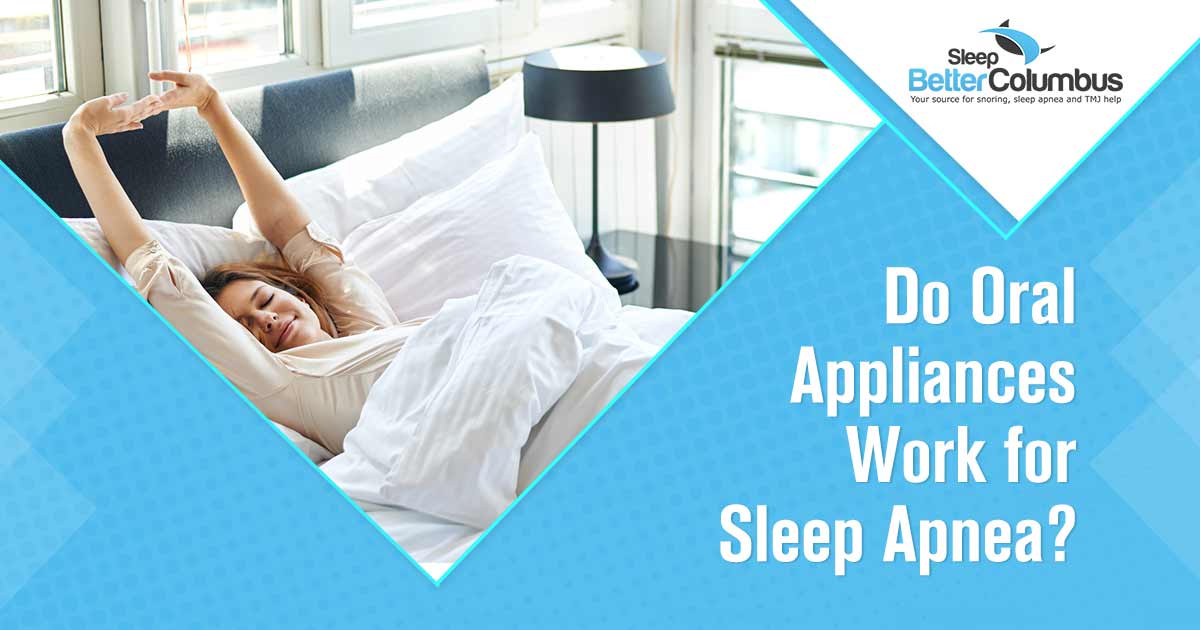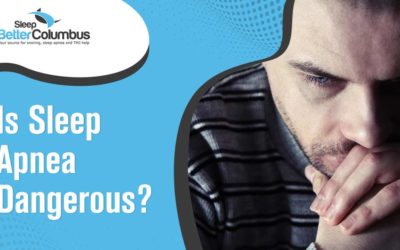Sleep apnea is problematic to your health. If you have sleep apnea, you’ll notice the signs. Fatigue, high blood pressure, irritability, and more. Treatment options are effective. The majority of treatment revolves around mouth devices, or “oral appliances”. These open up the airways and allow for easier breathing while sleeping (they do this by holding your tongue in place while you sleep). They also work by pushing or pulling your jaw forward. By controlling the position of the tongue, the jaw will follow suit.
Using Oral Appliances for Sleep Apnea
It’s best to start with these kinds of treatments before thinking about advanced treatment options like a surgery. Each oral appliance has its strength. Not all appliances will work for everyone. Some help by targeting the tongue area, others by targeting the nose, and others by targeting the jaw. Sleep apnea is often the result of issues in one of these areas. Here are some of the symptoms that oral appliances relieve:
- Exhaustion/Fatigue
- High blood pressure
- Difficulty concentrating
- Irritability
- Falling asleep anywhere and everywhere
- Sexual dysfunction
- Learning difficulties
Here are some of the conditions that oral appliances can prevent:
- Heart attacks
- Congestive heart failure
- Cardiac arrhythmia
- Stroke
- Depression
- Irritability
- Anxiety
Oral appliances need to be worn every night before bed. Some of them are more comfortable than others. Some are easier to clean and take care of than others. And some are more expensive than others. The most important thing to remember when researching devices is that you should always seek professional advice from a dentist. Dentists can also work to fit the devices to your mouth. You will also need to follow up with your dentist to let him/her know whether or not the device is alleviating your symptoms.
For most people, oral appliances work very well. Especially when it comes to snoring. These devices can eliminate snoring completely. Other people may need to take more drastic measures, like surgery. The type of sleep apnea you have can also determine what measures need to be taken. Oral appliances typically only work for people with mild to moderate sleep apnea. Newer studies are even saying that simple oral devices can help those with severe apnea.
Why People are Choosing Oral Appliances for Sleep Apnea
People with underlying health conditions like diabetes or heart disease may not benefit from these non-invasive treatment methods. They may need surgical intervention or a CPAP (Continuous Positive Airway Pressure). A CPAP is one of the most common methods used in treating sleep apnea, but it can be quite inconvenient. You need to cover your mouth and nose with a mask, plug in the device, and sleep with a constant flow of air. Many people can’t tolerate it. It’s often uncomfortable, but it has been shown to cause immediate results in patients.
To get the best therapy possible for you, seeing a specialist is highly recommended. They’ll often prescribe a home sleep study and go over your results with you. After you see a specialist, the dentist is a good place to go. They can help fit your oral appliance.
When you’ve decided to go the route of an oral appliance, the options may seem overwhelming. It’s hard to choose which appliance is best for you, even with professional recommendations. There is bound to be a little bit of discomfort when you first start wearing your appliance. The discomfort is usually around the jaw or the ears. Rest assured; this should pass over time. Your mouth needs to adjust to a new foreign object. When you take your appliance out in the morning, the discomfort should go away.
Oral appliances will also cause a slight excess of saliva and some tenderness in your teeth. Again, this is normal. Make sure you mention all side-effects to your dentist. He/she will closely monitor you. If the discomfort doesn’t go away, they’ll suggest another oral appliance for your sleep apnea. No matter where you go for your needs, make sure that you’re comfortable with your dentist. You need to be able to go to him/her with any and all concerns. Don’t hold back. The only way to get symptom relief is to get a perfect fit.
Finding the Right Oral Appliances for Your Sleep Apnea
There are quite a few brands and types of oral devices, but the most common is a mandibular advancement device. Mandibular means lower jaw. This looks very similar to a mouthguard. It attaches to the upper teeth and the lower teeth. It is held together with springs and custom adjustments. The device pushes the tongue and the jaw forward, clearing your airway. When you first try it, it will feel odd to have a foreign object in your mouth all evening. And this is one of the devices we mentioned that may cause a little jaw and tooth discomfort. But if it works, it’s worth it. It is more comfortable than wearing the CPAP mask. It’s also very low-maintenance and easy to clean. If you get it professionally fitted by the people at Sleep Better Columbus, your chances of discomfort are reduced.
The other popular oral appliance is called a tongue retaining mouthpiece. It looks similar to an adult pacifier, so some find it silly, but it works well. It’s also a little simpler than the mandibular advancement device and the CPAP. Once placed into your mouth, it surrounds the tongue and pulls it forward – away from your throat. In order for it to work, you need to stick your tongue into the slot and keep it there all night. You will get used to it, but it’s quite the adjustment.
Oral appliances can be much more practical than a CPAP or a surgery. They’re great for people who travel frequently because they’re so portable, and they’re often more cost-effective than surgery or a CPAP. They’re also easier to set up – no wires or filters. If they work for you, they’re a wonderful solution.




